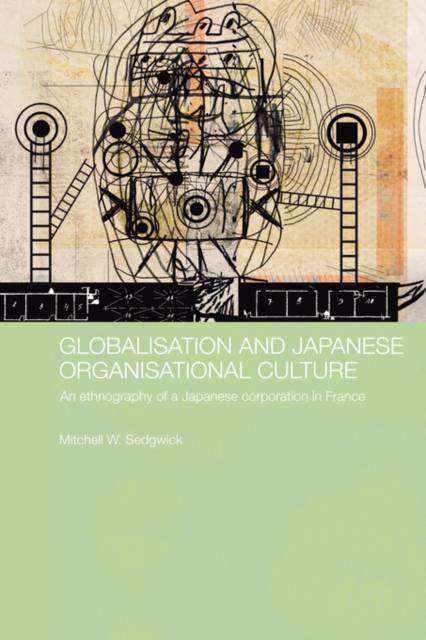
- Retrait gratuit dans votre magasin Club
- 7.000.000 titres dans notre catalogue
- Payer en toute sécurité
- Toujours un magasin près de chez vous
- Retrait gratuit dans votre magasin Club
- 7.000.0000 titres dans notre catalogue
- Payer en toute sécurité
- Toujours un magasin près de chez vous
Globalisation and Japanese Organisational Culture
An Ethnography of a Japanese Corporation in France
Mitchell SedgwickDescription
Globalisation - the global movement, and control, of products, capital, technologies, persons and images - increasingly takes place through the work of organisations, perhaps the most powerful of which are multinational corporations. Based in an ethnographic analysis of cross-cultural social interactions in everyday workplace practices at a subsidiary of an elite, Japanese consumer electronics multinational in France, this book intimately examines, and theorises, contemporary global dynamics. Japanese corporate 'know-how' is described not simply as the combination of technological innovation riding on financial 'clout' but as a reflection of Japanese social relations, powerfully expressed in Japanese organisational dynamics. The book details how Japanese organisational power does and does not adapt in overseas settings: how Japanese managers and engineers negotiate conflicts between their understanding of appropriate practices with those of local, non-Japanese staff - in this case, French managers and engineers - who hold their own distinctive cultural and organisational inclinations in the workplace. The book argues that the insights provided by the intimate study of persons interacting within and across organisations is crucial to a fulsome understanding of globalisation. This is assisted, further, by a grounded examination of how 'networks'- as social constructions - are both expanded and bounded, a move which assists in collapsing the common reliance on micro and macro levels of analysis in considering global phenomena. The book poses important theoretical and methodological challenges for organisational studies as well as for analysis of the forces of globalisation by anthropologists and other social scientists.
Spécifications
Parties prenantes
- Auteur(s) :
- Editeur:
Contenu
- Nombre de pages :
- 234
- Langue:
- Anglais
- Collection :
Caractéristiques
- EAN:
- 9780415492164
- Date de parution :
- 28-11-08
- Format:
- Livre broché
- Format numérique:
- Trade paperback (VS)
- Dimensions :
- 156 mm x 234 mm
- Poids :
- 335 g

Les avis
Nous publions uniquement les avis qui respectent les conditions requises. Consultez nos conditions pour les avis.






